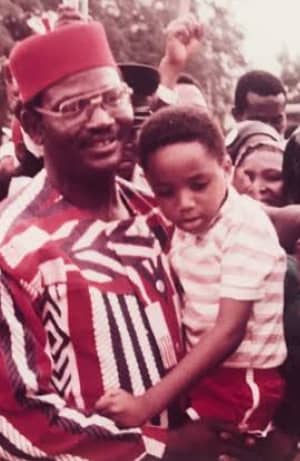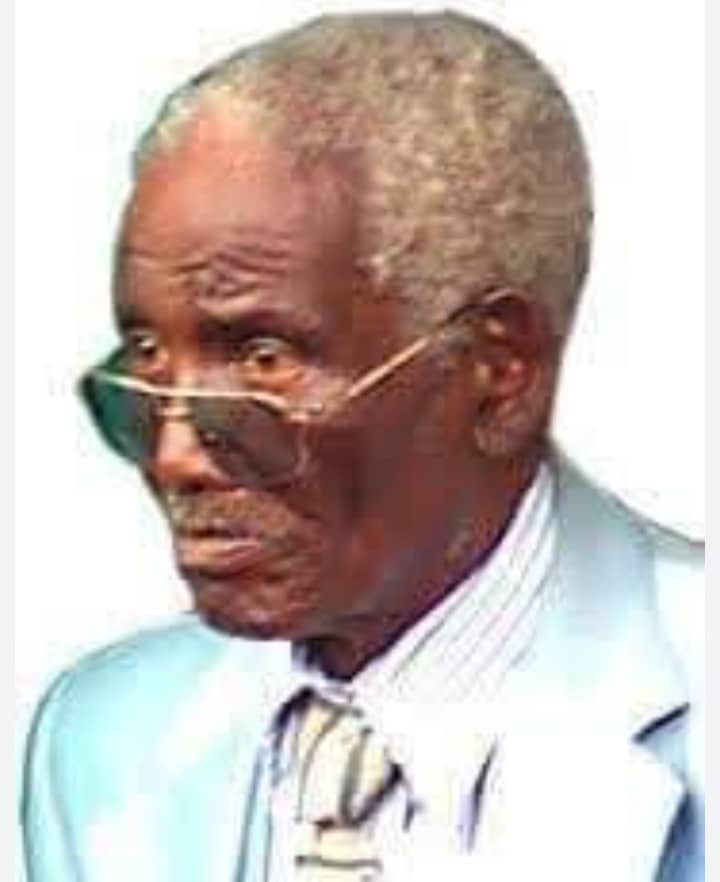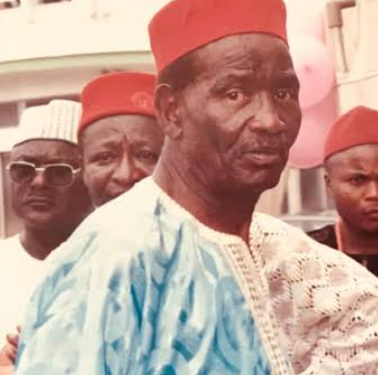By Dr. Josef ummunakwe Onoh
In the heart of Enugu State, the Wawa people had long cherished a humble delicacy: Okpa, a steamed pudding made from ground bambara nut flour, spiced with pepper and palm oil. It was a staple, a comfort food that filled bellies and warmed souls.
Yet, for years, many Wawa people ate Okpa in private, wary of the stigma that it was a “poor man’s meal,” mocked by urban elites who saw it as unsophisticated That perception began to crumble in 1983, thanks to my father —Chief Christian Chukwuma Onoh.con—and a moment of defiance that turned a local dish into a national legend.
Chief C.C. Onoh, a towering figure in Nigerian politics and a proud Wawa son, was running for governor of old Anambra State under the National Party of Nigeria (NPN). His opponent, incumbent Anambra State Governor Chief Jim Nwobodo backed by the Nigerian People’s Party (NPP), waged a fierce campaign, seizing on Onoh’s unapologetic love for Okpa and tea as a point of ridicule.
They painted him as a rustic, unrefined man, unfit for the polished corridors of power. Billboards and radio jingles mocked him, with slogans like “Okpa Governor, Onoh, ono okpa, sipping tea while we need progress!” The smear campaign stung, and for some Wawa people, it deepened their unease about their beloved dish. But Onoh, a man of steely resolve and unshakable pride, wore the insults like a badge of honor.

The 1983 gubernatorial election was fraught with tension. Allegations of rigging and political maneuvering led to a legal battle that climbed all the way to the Supreme Court in Lagos. On the day the judgment was to be delivered, the nation’s eyes were fixed on the court.
Supporters and detractors gathered outside, the air thick with anticipation. Inside, the justices deliberated, while outside, the Wawa people held their breath, knowing the verdict would shape not just Onoh’s fate but their collective pride.
As the gavel fell, the ruling came down: Chief C.C. Onoh was declared the rightful governor of Anambra State. Cheers erupted among his supporters, but the moment that would echo through history was yet to come.
As Onoh emerged from the Supreme Court, his face calm but triumphant, he did something no one expected. He paused on the steps of the court, signaled to an aide, and was handed a small basket. From it, he pulled out a neatly wrapped piece of Okpa, its golden hue glistening in the Lagos sun, and a flask of steaming tea.
With the poise of a king, he sat on the steps, unwrapped the Okpa, and began to eat, savoring each bite as he sipped his tea.
The crowd fell silent, then buzzed with astonishment. Reporters’ cameras flashed, capturing the moment. Here was a man who had just won a historic legal battle, unapologetically embracing the very dish his enemies had used to mock him.
The image of Chief Onoh, dignified in his agbada, eating Okpa on the Supreme Court steps, became front-page news across Nigeria. Radio stations buzzed with commentary, and newspapers ran headlines like “Okpa Triumphs in Lagos!” and “Onoh’s Victory Feast.”
For the Wawa people, it was a turning point. The shame that had clung to Okpa began to dissolve. If Chief Onoh, now governor, could celebrate his victory with Okpa in full view of the nation, why should they hide their love for it? Markets in Enugu saw a surge in Okpa sales.
Women who once prepared it discreetly began hawking it with pride, shouting, “Okpa di Oku!” (hot Okpa!) with newfound confidence. Restaurants in Lagos and Abuja started adding Okpa to their menus, touting it as “the governor’s delicacy.” Food vendors in Onitsha and Aba began wrapping Okpa in banana leaves with extra flair, marketing it as a taste of Wawa resilience.

The nation was captivated. Okpa became a symbol of defiance, authenticity, and cultural pride. Intellectuals wrote essays about its nutritional value, chefs experimented with gourmet versions, and even politicians from other parties began eating Okpa publicly to appeal to the masses.
By the time Onoh’s governorship ended, Okpa had transcended its regional roots, becoming a beloved dish across Nigeria, from roadside stalls to high-end eateries.
The Wawa people no longer ate Okpa in the shadows. They celebrated it, shared it, and taught others how to make it. Chief Onoh’s simple act on those Supreme Court steps had transformed a humble dish into a national icon, proving that pride in one’s roots could outshine any smear.
To this day, in Enugu and beyond, when someone unwraps a piece of Okpa, they’re not just eating—they’re honoring a legacy that began with a man, a meal, and a moment that changed everything. Today, not one single street, monument, or anything is named after him to honour his legacy in a state he single handedly fought to create, by the people he liberated from the oppression of the Anambra “Agbaenu” people, such is the reward for selfless service to an ungrateful people. Ibo’s pride themselves by saying ” Igbo ewe eze” ( ibo’s have no king) sadly a tribe or nation without a leader are like a flock of sheep without a shepherd, no direction, no respect, no vision, no destination and perpetually in conflict with every other organised flock grazing on their own grazing fields.
That’s the more reason Enugu State may never have another C.C. Onoh. (Okaa-omee Ngwo, Ani- nefungwu Agbaja) and the reason why children of great statesman mostly avoid taking up the mantle to serve the people. The reason why it’s been difficult for ibo’s to progress and become integrated in national politics and will continuously be guided with emotions and a sense of entitlement .
If we hope to produce an ibo president in the future, the ibo’s must learn to honour and respect their elders and their hosts and have leaders to lead them to glory. Remember, it all started with Okpa and a cup of tea.
*Dr. Umunnakwe is Chief Barr. Onoh’s son









